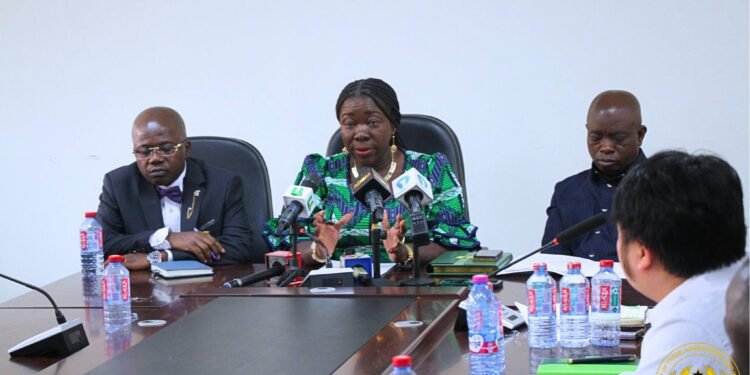In an article titled “More Interest Rate Cuts On The Way In Ghana, Following Cautious Start Of Easing Cycle,” Fitch Solutions predicts that the Bank of Ghana (BoG) will further reduce the policy rate by 100 basis points to 28.00% at the upcoming Monetary Policy Committee (MPC) meeting in March 2024.
This anticipated move follows the BoG’s recent decision to cut the policy rate to 29.00% on January 29, 2024. Fitch Solutions suggests that this is in line with the ongoing monetary easing cycle triggered by a significant slowdown in inflation.
Fitch Solutions projects an additional 800 basis points decline in the monetary policy rate throughout 2024, reaching 22.0% by the year-end. The firm attributes this downward trajectory to the expected continued disinflation process supported by base effects. The anticipated decrease in inflation is projected to persist over the coming months, driven by statistical base effects and the lagged impact of monetary tightening.
The UK-based firm outlines its expectation that inflation will remain on a downward trend, emphasizing the role of statistical base effects and the delayed effects of previous monetary tightening measures. Fitch Solutions sees these factors contributing to a gradual improvement in investor sentiment.
Furthermore, the firm anticipates the stability of the exchange rate at around GH¢12.00 to a dollar on the interbank market in the first quarter of 2024, supported by a $600 million International Monetary Fund (IMF) disbursement.
Limited Price Pressures and Disinflationary Trend
Fitch Solutions highlights that the ongoing disinflationary trend in Ghana will be further supported by limited price pressures from imported goods and services in the coming months. This positive outlook is linked to the expected stability in the exchange rate and the overall improvement in investor sentiment, along with the anticipated IMF disbursement.
The Bank of Ghana’s decision to cut the policy rate to 29.00% on January 29, 2024, aligns with Fitch Solutions’ expectations of the commencement of a monetary easing cycle. Fitch Solutions notes that this move followed a significant slowdown in inflation, dropping from 35.2% year-on-year in October to 23.2% in December.
While Fitch Solutions paints a positive picture of Ghana’s economic trajectory with the anticipated policy rate cuts, it is crucial to acknowledge potential challenges and implications. A sustained disinflationary trend may positively impact consumers through lower borrowing costs and increased purchasing power. However, there could be challenges in striking the right balance between inflation control and stimulating economic growth.
Additionally, external factors such as global economic uncertainties and commodity price fluctuations could pose challenges to the Ghanaian economy. Monitoring the effectiveness of these policy measures and adapting to evolving economic conditions will be key for the Bank of Ghana as it seeks to foster a stable and resilient economic environment in the coming months.
As the Ghanaian economy sail across the path of monetary easing, Fitch Solutions’ forecasts suggest that the BoG will continue its policy rate reduction by another 100 basis points to 28.00% in the March 2024 MPC meeting. The expected decline in the policy rate throughout 2024 is seen as part of a broader effort to maintain a disinflationary trend, supported by favorable base effects, improved investor sentiment, and anticipated financial support from the International Monetary Fund. These projections will likely shape the Ghanaian economy and influence various sectors, reinforcing the country’s commitment to economic stability and growth.
READ ALSO: Mahama Ends Eastern Region Tour: Vows to Protect Okada Business






















